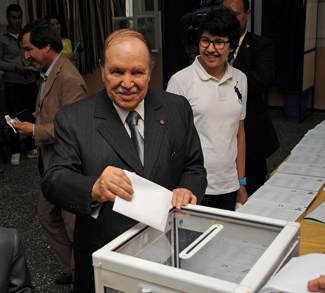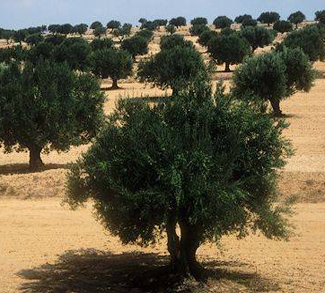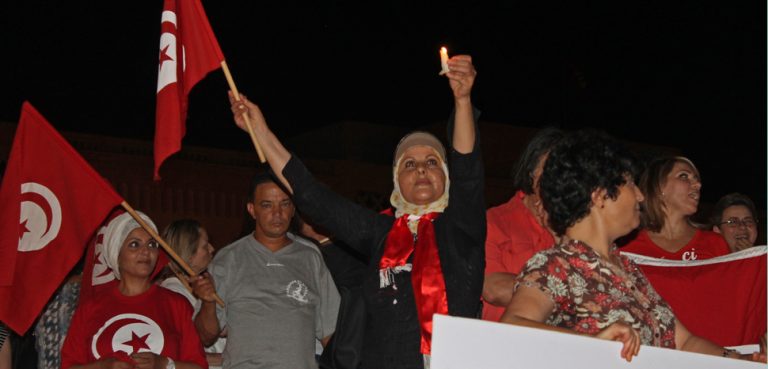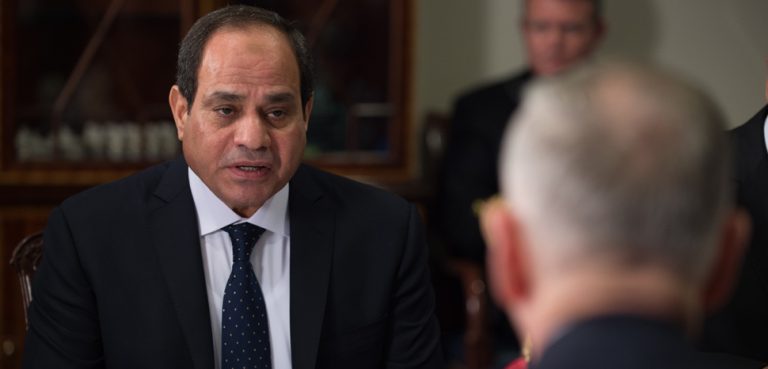One of the more notable and less remarked-upon phenomena to emerge from the Arab Spring in 2011 was which states failed to participate in the otherwise-sweeping series of political changes to hit North Africa.
Despite the fact that Algeria’s immediate neighbor to the east Tunisia was the domino that sent the others falling, and that Egypt and then Libya were to follow shortly after, the massive state in the Maghreb remained impervious to similar instances of widespread public unrest calling for fundamental changes in government.
Algeria isn’t about to see a change in government anytime soon, it would appear, after ailing and long-serving president Abdelaziz Bouteflika, 77, formally registered his intent to run for a fourth five-year term on March 3.
The president appeared briefly on state television, but left his prime minister and state news agency APS to make the formal announcement.
Official campaigning kicks off March 23, but the president is unlikely to launch a drive for re-election himself, the prime minister said. President Bouteflika suffered a stroke in 2013, leading some Algerian news agencies to prematurely announce his death.
Even despite these concerns over his health and his capacity to serve a full term, Bouteflika is tipped to win the election – especially given that the largest opposition party in the country, Islamist party Movement for Society for Peace – will not participate in the April 17 polls over concerns of electoral fraud.
Whatever the outcome of the elections and afterwards, the political future of Algeria is critical to the wider stability of the North African and Sahel region.
The country is the largest in Africa, bordering Morocco, Libya, Mauritania, Mali and Niger – many of which remain or have recently become trouble spots due to the rise of renegade Islamist militias that threaten to destabilize local governments. Algeria’s southern territories sit along a region well-trafficked by these militias, with local governments often powerless to head off attacks. Earlier this year, sectarian strife rocked the southern town Ghardaia, killing 1 and wounding at least 10.
The inability of the government to provide security was highlighted in January 2013, when another renegade Islamist group took hundreds of foreign and domestic workers hostage at the Amenas gas plant, jointly operated by Norwegian Statoil, BP, and Algeria’s Sonatrach. The Algerian army mobilized and surrounded the compound, only to attack the militants as they attempted to transport hostages in a convoy.
All told, 69 people died, including 39 hostages and 29 Islamists.
Instability also reigns to the north of the country in the Kabyle region, where militants still harbor ill-will towards the government after the end of the country’s brutal civil war in the 1990s. The 1992-2002 conflict between Islamist groups and the government in Algiers killed 200,000 and left still-festering scars among most of the populace. To this day, disenfranchised soldiers who fought on the Islamist side remain positioned in Kabyle, and firefights between government troops and these groups are not infrequent. On March 4, six of the former fighters and one Algerian member of the military were killed in one such skirmish.
Also in the south, Al Qaeda in the Maghreb – also known as AQIM – has made the Sahel region its own, seemingly remaining immune from border restrictions and state security apparatus while wreaking havoc on local towns and populations. A splinter group from AQIM was involved in wreaking havoc on Mali, joining in with other local Islamist militias to seize parts of the north of the country. Though the government signed a peace accord with rebel groups in June 2013, these groups reneged on the deal just three months later, and have continued to do battle against Malian and French troops.
Such insecurity explains Algerians’ lack of appetite for substantial political change, despite widespread discontent with the corruption and inadequacy emanating from the current political classes.
Also fuelling this desire for stability above all else is the fallout from the Arab Spring in Tunisia, Libya, and Egypt. Though Tunisia just lifted its state of emergency that had been in effect since the start of the public protests, Libya remains ungovernably turbulent and Egypt has struggled to impose a government immune to widespread public demonstrations.




